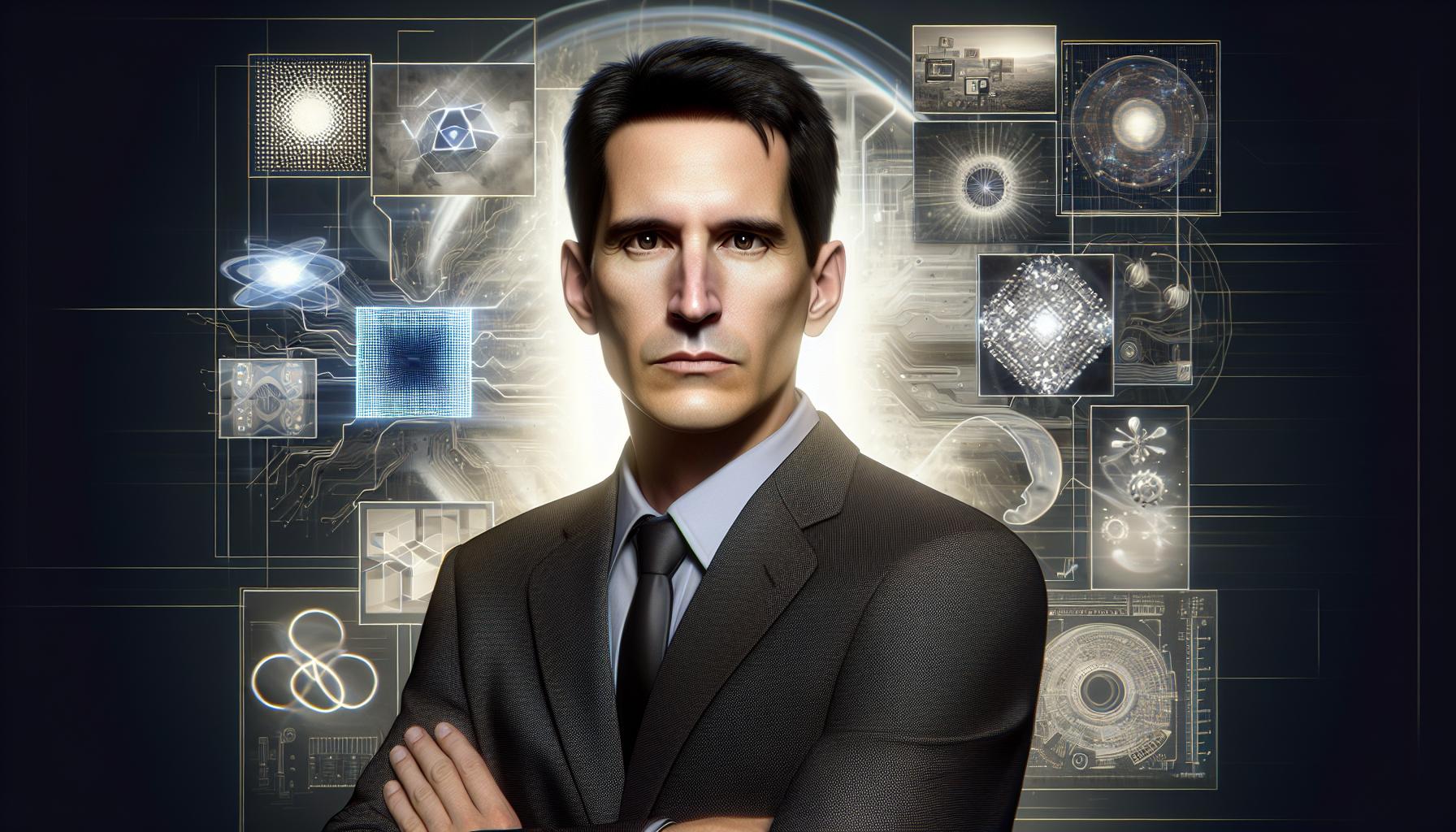When I think of groundbreaking innovation, Elon Musk is a name that instantly springs to mind. Known for revolutionizing industries from electric vehicles to space exploration, Musk’s ventures often push the boundaries of what’s possible. Now, whispers of his interest in quantum computing have sparked curiosity and excitement in tech circles worldwide.
Quantum computing isn’t just another buzzword; it’s a potential game-changer in the tech world. Unlike classical computers, which process information in binary, quantum computers use qubits, allowing them to solve complex problems at unprecedented speeds. If Musk sets his sights on this field, we could witness a technological leap akin to those seen with Tesla and SpaceX.
As I delve into the potential impact of Musk’s involvement in quantum computing, it’s clear that his unique approach and ambitious vision could accelerate advancements, transforming industries and redefining how we tackle some of the world’s most challenging problems.
Key Takeaways
- Elon Musk’s Potential Influence: Elon Musk’s interest in quantum computing could drive significant advancements, leveraging his track record of transforming industries like electric vehicles and space exploration.
- Understanding Quantum Computing: Quantum computing utilizes qubits for faster problem-solving, offering transformative potential for fields such as cryptography, drug discovery, and optimization.
- Impact on Musk’s Companies: Quantum computing could enhance SpaceX’s mission planning, Tesla’s machine learning and manufacturing processes, and Neuralink’s brain-machine interface developments.
- Challenges in Quantum Computing: Technical hurdles such as qubit decoherence and system scalability exist, requiring specialized expertise and innovative approaches to overcome.
- Market Opportunities: Quantum computing presents vast opportunities in cybersecurity, pharmaceuticals, and logistics, aligning with Musk’s vision for industry innovation.
- Future Prospects and Innovation: Quantum computing promises to revolutionize multiple sectors, with visionaries like Musk potentially accelerating its development and integration globally.
Elon Musk Quantum Computing
Quantum computing transforms problem-solving by using quantum mechanics principles. It processes complex calculations faster than classical computers, unlocking new possibilities in various fields.
Basics of Quantum Computing
Quantum computing operates on qubits, unlike classical computers that use bits. A qubit can exist in multiple states simultaneously, thanks to superposition. Quantum entanglement allows qubits to share information instantaneously. These properties enable quantum computers to solve specific problems, like factoring large numbers, exponentially faster.
Importance of Quantum Computing in Technology
Quantum computing holds immense potential for technological advances. It could dramatically enhance areas like cryptography, drug discovery, and optimization problems. In cryptography, it can break traditional encryption but also create secure communication channels. Drug discovery can see improvements with complex molecule simulations. Optimization in logistics, finance, and AI benefits from faster, more efficient problem-solving capabilities.
Elon Musk’s Interest in Quantum Computing

Elon Musk, known for reshaping industries, has expressed interest in transformative technologies. Quantum computing’s potential might align with his quest for innovation.
Background on Elon Musk
Elon Musk, a prolific entrepreneur, co-founded ventures like PayPal and revolutionized electric vehicles with Tesla. SpaceX, another Musk-led innovation, redefined space exploration by reducing costs and pioneering reusable rockets. His relentless pursuit of technological advancements underlines his interest in exploring new frontiers that push the limits of current capabilities.
Previous Ventures and Innovations
Musk’s ventures span diverse fields from renewable energy to neurotechnology. Tesla’s Autopilot introduced autonomous driving features leveraging AI, while Neuralink aims to connect human brains with computers for enhanced cognitive capabilities. These initiatives reflect his knack for integrating cutting-edge technologies to create impactful solutions, potentially paving the way for exploring quantum computing applications in sectors like artificial intelligence and cybersecurity.
Potential Impact of Quantum Computing on Musk’s Companies

Adopting quantum computing could significantly enhance the capabilities of Elon Musk’s companies. By integrating this next-generation technology, his enterprises might redefine industries with unprecedented precision and speed.
SpaceX and Quantum Computing
SpaceX stands to benefit immensely from quantum computing. With quantum algorithms, mission planning can achieve higher efficiency, optimizing spacecraft trajectories and reducing fuel consumption. Through advanced materials simulation, stronger and lighter aerospace components can be developed. Given quantum computing’s ability to handle complex simulations rapidly, breakthroughs in this area could revolutionize space travel and exploration efforts.
Tesla and Quantum Computing
Tesla’s operations might gain precision and efficiency with quantum computing integration. By enhancing machine learning models, the Autopilot system can improve on-road decision-making and safety. Manufacturing processes would benefit from quantum optimization, reducing costs and energy consumption. Quantum computing’s potential in battery development could lead to the innovation of more efficient energy storage solutions, prolonging electric vehicle range and performance.
Neuralink and Quantum Computing
Neuralink’s endeavors in brain-machine interfacing could reach new heights with quantum computing. Faster data processing can accelerate neural analysis and enhance communication between the brain and devices. Understanding complex neural interactions more rapidly could lead to significant advancements in treating neurological disorders. The vast computation power of quantum systems would support the intricate modeling of neural connections, fostering innovation in neurotechnology applications.
Challenges and Opportunities

Elon Musk’s potential entry into quantum computing presents unique challenges and opportunities. This emerging field offers immense possibilities but also comes with technical hurdles and market dynamics that influence its development.
Technical Challenges
Quantum computing faces numerous technical challenges that could impact development. Decoherence is a significant issue since maintaining qubits’ quantum states is difficult due to environmental noise and interference. Scaling up the number of qubits while ensuring error correction and stable system operation is also complex. Hardware limitations and the need for specialized algorithms that can leverage quantum speedup further complicate progress. Tackling these technical barriers requires collaboration with experts in quantum mechanics and computer science.
Market Opportunities
Market opportunities for quantum computing are vast, particularly in sectors where Elon Musk’s companies already innovate. In cybersecurity, quantum computers could create unbreakable encryption, safeguarding data from future threats. The pharmaceutical industry could benefit from rapid drug discovery, with quantum simulations modeling molecular interactions. Furthermore, optimization in supply chains and logistics could see unprecedented efficiencies, critical for Tesla’s manufacturing and SpaceX’s resource management. Engaging in these markets provides avenues for transforming industries, aligning with Musk’s visionary goals.
Future Prospects for Quantum Computing
Quantum computing represents a monumental leap in technology, poised to redefine multiple sectors on a global scale. This section explores its potential future impact and how visionaries might drive this transformation.
Predictions and Expectations
Quantum computing is expected to revolutionize industries by tackling computational problems currently unsolvable with classical systems. Cryptography could see unprecedented advances, improving data security worldwide. In pharmaceuticals, the ability to simulate molecular interactions rapidly offers the promise of groundbreaking drug discoveries. Financial modeling and logistics could also greatly benefit, delivering optimized solutions through complex calculations. These advancements are anticipated as quantum computing matures and is integrated into various fields, enabling enhanced accuracy and efficiency.
Role of Innovators Like Elon Musk
Innovators like Elon Musk could play a pivotal role in the quantum computing landscape due to their ambitious vision and unique ability to integrate advanced technologies across industries. By leveraging his experience from Tesla and SpaceX, Musk can potentially bring disruptive quantum solutions to sectors such as renewable energy and space exploration. His deep interest in AI and neural technologies suggests he might explore synergies between quantum computing and these areas, fostering breakthroughs. Musk’s influence, resources, and innovative approach position him to significantly accelerate the development and application of quantum computing, shaping its future trajectory.
Elon Musk’s potential entry into quantum computing could ignite a new era of innovation, much like his ventures in electric vehicles and space exploration. His unique approach and visionary mindset might catalyze significant advancements, addressing complex global challenges. As quantum computing continues to evolve, its integration into Musk’s diverse enterprises could transform industries, offering unprecedented solutions in areas like artificial intelligence, cybersecurity, and neurotechnology. The possibilities are vast and exciting, promising a future where quantum computing reshapes our technological landscape. Embracing this transformative technology could redefine the future, aligning with Musk’s relentless pursuit of groundbreaking innovation.

